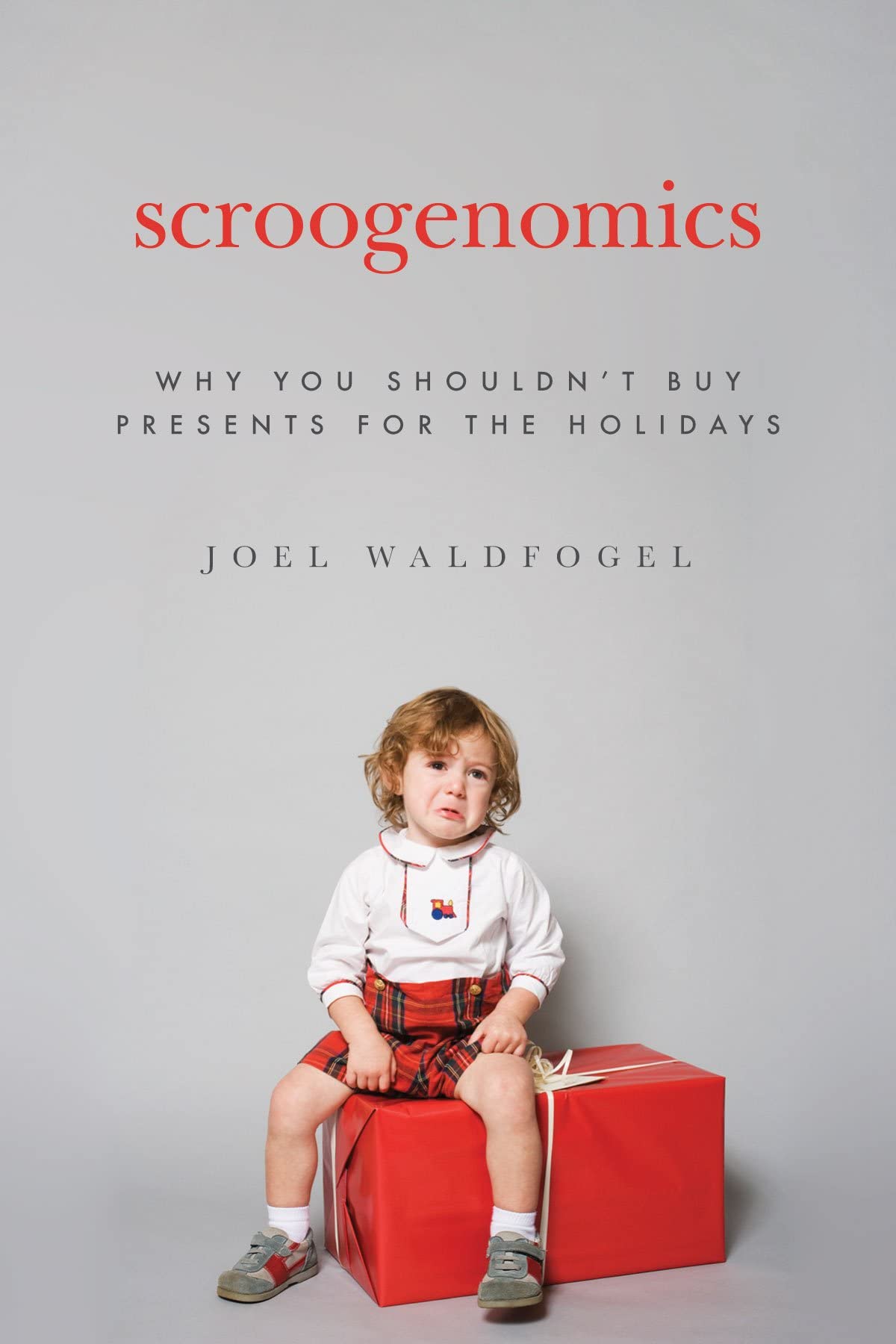Scroogenomics: Why You Shouldn't Buy Presents for the Holidays
Scroogenomics: Why You Shouldn't Buy Presents for the Holidays is backordered and will ship as soon as it is back in stock.
Couldn't load pickup availability
Genuine Products Guarantee
Genuine Products Guarantee
We guarantee 100% genuine products, and if proven otherwise, we will compensate you with 10 times the product's cost.
Delivery and Shipping
Delivery and Shipping
Products are generally ready for dispatch within 1 day and typically reach you in 3 to 5 days.
Book Details:
-
Author: Joel Waldfogel
-
Brand: Princeton University Press
-
Binding: Hardcover
-
Number of Pages: 192
-
Release Date: 25-10-2009
-
EAN: 9780691142647
-
Package Dimensions: 6.2 x 4.2 x 0.4 inches
-
Languages: English
About the Book:
"Scroogenomics: Why You Shouldn't Buy Presents for the Holidays" by Joel Waldfogel explores the economic waste generated by consumer spending, especially during the holiday season. Waldfogel argues that holiday gift-giving is economically inefficient because it often results in receiving gifts that are not valued by the recipients as highly as the money spent on them. He uses concepts from economics and consumer behavior to demonstrate that this tradition leads to vast economic waste.
Key Insights:
-
Economic Waste of Gift-Giving: Waldfogel demonstrates that the money spent on gifts is frequently wasted, as people often do not select gifts that are precisely aligned with the recipient's preferences.
-
Consumer Behavior: The book examines how consumers, despite having good intentions, frequently make economically inefficient choices when buying gifts for the holidays.
-
Holiday Consumerism: The book critiques the consumerism of the holiday season, calling for more thoughtful, value-driven spending rather than participating in the traditional cycle of gift-giving.
-
Cultural Reflection: It invites readers to reflect on the cultural aspects of gift-giving and challenges the assumption that spending money on gifts equates to increased happiness or goodwill.
Conclusion:
Waldfogel’s Scroogenomics provides a critical look at the economic and social aspects of holiday gift-giving. It challenges readers to rethink whether the tradition of buying gifts is genuinely beneficial, or if it simply perpetuates economic waste. This book is a must-read for those interested in the intersections of economics, consumer behavior, and cultural practices.







